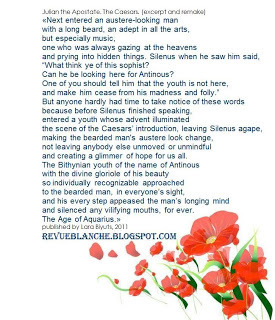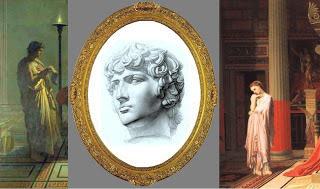Lara Biyuts's Blog, page 6
May 19, 2012
excerpt2
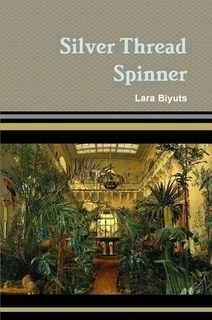 Part 3. The Shadows Call
Part 3. The Shadows Call “It’s not over. It’ll never be over.” (Sheriff of Nottingham)
Day Outlasts Century
Solemn and stooped, wearing a long dark array from top to toe, the priest was reading aloud the solemn incantations that resounded through the spacious dimly lit cave. The ornament of mysterious signs over his ritual array was carefully elaborated, and his tall faceless figure along with the formless shade looked enormous in the flickering candlelight. The vaults of the cave had former pomposity no longer, but they still thrilled impressible minds: the frescos of scenes of initiation to a weird cult, a rose-crowned matron sitting in a chariot drawn by lions in the central fresco, the filigree of the pilaster capitals. A small saline lake in the middle of the cave looked strange here. Bubbles appeared on the lake surface from time to time, and the air smelled of sulphur. Taking no notice of the ancient decoration’s beauty, the priest chanted the sacral texts, and acolytes or hired bodyguards heeded him, silently standing at the entrance. Now the text came to an end, and nothing special ensued for several seconds. Doubts rose in the priest’s mind: whether he read the texts correctly? was anything wrong? And now, the lake water rippled; the oil-lamps’ flame flashed up; somebody gave a screech. “Belarriss!” exclaimed the priest. “Magna Mater! Goddess! We resuscitate you in order to worship you, to rebuild your temples so that the cult of the goddess Belarriss again…” The water seethed, the air sparked, and a pillar of a luminescent substance rose rapidly taking shape of a human. “Is there a woman here?” a loud imperious voice was heard. “Excuse me, my lady?” The priest threw back the hood of his array, and one could see he was a very handsome young man about twenty-five, six-foot tall, with a dark fringe a la Paul McCartney over his forehead and with young Paul McCartney’s radiant, happy and a little bit silly smile. “I can see only men here,” explained the voice toning down, “What do the present-day women wear?”“Oh my lady, you are beautiful… The flaming-heart is the divine aura that one feels shining from your beautiful face, the star and emblem of female beauty, which is the heart of your grace and the emanation of your power…”“How do you know beauty, you slave?!” She gestured to one of the bodyguards. “You! Having anything to say?”“My humble… I…” began the bodyguard taking something out of his black leather jacket pocket, “I have a photo. Maybe it’s of use…” He approached, held the photo out to the reborn goddess, and bowing he retreated. The goddess examined the image of a young woman wearing blue jeans and a white ruched blouse, and then she asked, “Is she reckoned beautiful?”“Yes,” the bodyguard nodded, and he quickly added, “Yes, Goddess.”Belarriss dropped the photo, losing interest to it, and before everyone’s eyes she began changing: her hair got shorter and blonder, modern day clothes began delineating over her form, her skin got a golden suntanned. Her features were not like the girl’s in the photo, but the similar maquillage covered her face now. Finishing the conversion the goddess turned to the priest, “What did you resuscitate me for?”“Oh Miss Belarriss!” the priest came to himself after astonishment, “My intention is pure. Longing for transcendence I’ve decided to make you free, purely for restoration of justice. But if Goddess wants to have a faithful servant and trustworthy adviser…”“Do you know of my story?” she asked.“Yes, Goddess. I know what I’ve found out in the forgotten sources. The goddess Belarriss ruled the country for five generations. One day, she conceived conquering the world. During one of the campaigns the citizens of the country revolted, and some bigots contrived to overthrown Goddess, and they imprisoned her essence in the bewitched cave.”“Don’t you think it’s served me right?”“Nobody dares check Goddess.”“I expect, you’ve drawn any conclusions?”“Oh yes, Goddess. Astonishing conclusions,” the priest’s smile was subtle now.A bat slid noisily across the ceiling and disappeared in the dark passage. “Not a word more!” said the goddess. “You’ll get your deserts and your desideratum, and now… Leave me alone.”Taking long views, the priest did not object, although plans of conquering the world flashed across his mind one by one. No hurry: the main thing had been done, and all the rest was a matter of his cunning and legerdemain. Undoubtedly, it was a forlorn hope to deal with the petticoats; on the other hand, he had no choice. He said bowing, “I’ll come tomorrow by night, if Goddess would like.” The priest walked to the doorway, nodded to his acolytes, and they left the chamber. Alone, the goddess said, “Ad calendas graecas… No denying, he is a clever rouge, but even a wise man stumbles, Homer sometimes nods.” She waited till the footsteps died away, then she slid lightly down on the floor, and at the moment, her foot in the shoe with stiletto heel turned awkwardly, and she nearly lost her balance. The walls of the cave resounded several ancient curses, yet Belarriss braced herself up and attempted making one more step. “How do they walk in these shoes?” she muttered, “What has happened to the world, if inconvenience has become attractive?..” Presently, Belarriss was at home in the situation, being able to walk around the cave more or less easily. Time and marauders did not spare the place of her tomb. The goddess hardly could recognize the luxurious burial chamber, and she thoughtfully tried to guess where there were her favorite jeweled gold goblet, chryselephantine throne and all her jewellery now… All the things remained in the dim and distant past. Vexed, she uttered several phrases, and if the priest were here, he would heard, “…Dunces! When on earth the idiots, the megalomaniacs will finish? They know what happened to me. Are they about to go the same way? But I know where it leads to,” she sighed deeply, glanced round the cave for the final time and walked to the exit. The trace of treads was visible on the ground; the woman walked along the trace, and in two hours she saw an asphalt road. An hour more and she saw the service station where there were a small coffee house and shop. She came in the coffee house. A man at the counter paid off for his meal that was on the tray. Belarriss put his hand in the pocket of her jeans and several banknotes materialized in her hand. “Same for me, please,” she asked the waitress. The waitress nodded and took the money. “Here is your change. Go to the table. I’ll bring the tray to you.” Belarriss went to a table and sat down on a chair, squinting at the man who ate with the help of his fork. Her meal proved to be substantial and even tasty, only the potion, called “coffee”, was disgustingly too bitter. “No, it’s not pharmacon nepenthes, far from it,” but Belarriss drained her cup dry in order not to look particular. In general, the morning had begun fairly well. The air outside smelled of autumn, but the grass was still fresh and leaves were green. “It’s midi-August,” the goddess supposed. Coming out of the café, Belarriss stood still at the road, thinking where she was to go now. Her reflection did not last for long: a heavy van stopped before her, the door of the car opened, and the driver asked friendly: “May I give you a lift?”“Pardon?”“I can take you home. Where is your home?”“My home… Nowhere, as I think. My intention is to see the world.”“It happens fairly often,” the driver nodded, “I'm going to Ancile. If you want, I can give you a lift. No harassment, upon my word.”The woman shook her head smiling, “That’s not what I worry about. As I think… you are either married or engaged.”“Right.” The driver helped the woman to get into the car. “What is your fiancée’s name?” she asked. “Lily-Radda.” “What a coincidence… I am called Lily-Radda too.” “What are you?” the driver turned the ignition. “Goddess,” said Belarriss wearily, thinking nobody could believe her. “Such things happen from time to time”, the driver smiled without opening his lips. He got used to listening to somebody else’s secrets or outpourings, and he was not importunate, “You look sleepy. Lean back and doze off. Nothing interesting you will see for some time.”The bright summer landscape rolled past the window. Belarriss followed his advice, and in a minute her breathing got deep and calm. A sleeping goddess was a usual sight in this part of the world, just nobody took it seriously.
to be continued.now, at Amazon: http://amzn.com/1470988356
Published on May 19, 2012 02:04
May 8, 2012
translation
DISHARMONIE HARMONIEUSE
Introduction
Zinaida Gippius (1869-1945) and her husband Dmitriy Merezhkovsky (1865-1941) was a happy childless couple of Russian writers from St. Petersburg, who lived in Berlin. Nabokov at his young age used to visit their salon. Before looking at Leon Bakst’s famous portrait, in which the middle-aged Zinaida Gippius is wearing a costume a la Oscar Wilde (1906), I deemed my manner of lounging on the chair is unique. She was red-haired, myopic, slim. Half myrrh-bearer, half garconne. In her poems she used masculine gender and pronoun ‘he’ speaking of herself. Her poems left me cool, because like her husband she was a religion and mystique oriented writer--between 1894 and 1905 Merezhkovsky wrote a trilogy of historical novels entitled The Death of the Gods (1894, on Julian the Apostate), Leonardo da Vinci (1896), and Peter and Alexis (1902) about Peter the Great and Tsarevich Alexis. I read a part of Gippius’s St. Petersburg Diaries, which I regard as great historical nonfiction; her thoughts and theories concerning the current politics and everyday life of the beleaguered Petrograd are so close to my own thoughts on the theme that it seemed to me sometimes that I read my own words when reading the Diaries. I hardly have anything in common with her as a person unless her firm politics and her manner of lounging on the chair. After I reread her Parisian gay themed essay “Disharmonie harmonieuse”, I tried to find its English text on the Net, but in vain. There are not her works in English on the Net, which is a pity. Then I decided to translate the essay. The small essay is a bagatelle, if you like, but in my view, it is most interesting and worth rereading and remembering as an old document like a photo. The reader may take this translation as purely informative text. I don’t share the author’s irony concerning harmony of the world, and I believe in harmony of the disharmonious.
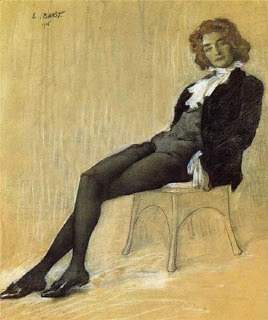 Now imagine: the 1920s, Paris by night…
Now imagine: the 1920s, Paris by night… DISHARMONIE HARMONIEUSE
The small brightly lit café is white, cozy, douillette, with windows and doors covered with reddish-rosy velvet. The café patron is a chic swarthy man wearing a dinner-jacket, white shirt and patent-leather shoes with white uppers. He wants nothing to be visible or heard outside, and every now and then, with his well groomed hand, graced with glittering rings, he straightens the close velvet of the windows.It’s one at night. Theatre shows are over, and the elegant smelly automobiles and cabs drive up to Bar Auguste in the dubious small lane in Montmartre. The door opens every minute. Gentlemen wearing tailcoats; ladies wearing evening dresses. Two mirrored walls vis-à-vis multiple reflections of everything and everybody between them. Sounds of matchiche are heard from the corner where the musicians’ jackets show red. Snaking, the middle-aged, clean-shaven Hautero dances with Babette. Babette turns his head to look at himself in a mirror, every now and then. He loves himself. He is concerned in his accurate kinky hair: the perfect hairstyle should not be disordered. A strange hair, it looks like a wig of false astrakhan or like our soldiers’ hats. Hautero (he is… dressmaker) is draped with a Spanish large serape. The café is crowded, and the serape’s long fringe gets caught on the guests’ buttons. Hautero has a black trilby on his head. A red rose is in his teeth. Clicking ivory castanets, Hautero looks fascinated by dancing. He enjoys the attention of the chic guests, who are numerous tonight in the brightly lit room; besides, he loves Babette and clings to the young man, snaking languorously. Loud applause. The patron applauds looking askance at the door. “Bravo, Hautero!” the guests shout, and two ladies invite him at their table and ask to have a glass of champagne. One of the ladies has canotier and a coat on, a starched collar props her sharp chin; she has a cigarette in one hand, her other hand embraces her neighbor, a nice-looking pale girl, brightly lipsticked. The girl has rich flaxen-coloured hair; on her fingers she has such a great amount of rings that she seems to be metal gloved. The bebe style white frock. “Lily!” Hautero compels her, “Sing for us!”Mincing Lily goes to the middle of the room. Her friend never takes eyes off her. But there is a small misunderstanding. Adolph, a lovely youth with dark languid eyes is tired of sitting at table with a German. The German treats Adolph to beer; the man hardly can speak French; actually, he looks rude, boring, uninteresting. Now, a Pole wearing a tailcoat and top-hat throws a rose across the table to Adolph. The youth puts the rose in the buttonhole, comes to the Pole and kisses the man on lips. The German takes offence and becomes insolent to the Pole. Who knows what would come of it but for the sophisticated patron. Confused not in the least, he knows whose side he should take with: the Pole spends hundreds francs for champagne every night in the cafe. The patron speaks energetically about something to the German. The angry man turns red and goes to the exit; everyone laughs and whistles after. Adolph laughs especially loud, however he is looking at the Pole no longer--now he looks occasionally at three clean-shaven Americans with thick cigars in teeth, who watch dully and imperturbably what’s going on. Lily has nearly taken alarm but she calms down and begins to sing in a thin voice a sweet song, throwing her eye up at her friend. Amidst the men, the singer is not a success, but the chic ladies of demi-monde bend and begin to explain something to their tired elderly boyfriends, and then they applaud softly with their hands wearing long white gloves. Babette announces he wants to sing too. But it’s the same old story: being engaged in himself too much he demands everyone to keep silence while he sings. As if on purpose, talks arise amidst the listeners as soon as he begins to sing. He grows angry and becomes silent. To take offence affectedly, to make a little moue of plaint is profession of the kinky lamb Babette. One of the guests, a young artist crosses out his funny well-meant caricature. Like Lily, Babette loves sweet sentimental songs. Pressing his hands on his bosom, he sings of unshared love, of men’s heartlessness. But Lucien is quite another matter; the young man dislikes the sloppy endearments. His baritone is not bad at all. Opening his eyes wide, looking seriously, he shoots out the free-spoken things that in virtue of their specific character hardly can be comprehensible, at times. Most spicy bits he underlines with gestures. His listeners enjoy. The Pole laughs especially loud. He has forgotten of Adolph and invites the mettlesome Lucien at table. However, there are two Luciens. The second one is a modest, non-singing boy about eighteen or may be younger. The young Russian artist, the enigmatic habitué (“enigmatic” because nobody, including Hautero, knows his name here, though everyone here has got used to him and loves him) calls the second Lucien to sit at our table. Hautero, who is tired of dancing, sits at our table too.The artist presents little bouquets of violets to Hautero and Lucien. Lucien is so stupid that he doesn’t know what he should do with his bouquet. Lucien is stupid to utter perfection--not only to innocence, but even worse, to ultimate virtue. He hardly can speak. He just smiles with his fresh childish lips. His eyes are either an infant’s or a deer’s, very beautiful. Being slightly confused, an elderly Russian writer admires the eyes; yet the man doesn’t look for a wit, being content with his own, as for adolescence, Lucien has it to your heart’s content. Really, what for a wit, if there are freshness, beauty and virtue? “Gha-a…” Lucien smiles. “J’aime tout le monde…”And Hautero is not stupid at all. He doesn’t mind philosophizing, pretending to be une cocotte chic, as usual--as usual, repeating female feline grimaces. His face is whitened like a mask. The nostrils of his flattish nose swell; he puts the violets and round green leaves in his ears. He has tousled the little bouquet to parts. “Life is good, isn’t it, bon camarade?” I ask.He makes a small bow on one side, “Good, because there is always hope.”“Hope of what?”“I don’t know. Is that of importance? O, speranza, speranza!”“You lie”, I think, “You know the old age is coming; you know that at your art of ‘dressmaker’ you need adolescence as nobody else; even une cocotte chic, even she keeps her fortune longer than you…”Some movement. A new face. A boy, well-dressed, uncommonly beautiful, perhaps a Spaniard. His eye is confused, alarmed and somewhat badgered. He looks round. Hautero jumps up pushing Lucien neglectfully. The Spaniard is encircled. Another moment he is jammed. What next happens to him?--presently--I don’t know. The musicians have nearly begun to play a gipsy romance, but they are interrupted with everyone’s demand of “matchiche”. Snaking, someone goes to dance again… Lifted arms sway in the dove-coloured air…Well, what comes next? We seem to do all tonight--both singing and dancing--and all is good, in friendly way… But there is a new guest: a little old woman in black with a little reticule in hands. She looks like a usual parishioner of a church. A woman like she stands at a chapel and moves her lips telling her beads. But there is not a chapel here, and the old woman has a pack of cards in hands instead of beads. She is a fortune-teller.The well-dressed ladies are glad. At their table, the fortune-teller shuffles the worn, greasy cards. The elderly tailcoat-clad boyfriends put monocles in eyes and pretend to be interested in the fortune telling. The ladies laugh loudly.But some of the guests are off. The Pole went away along with the little Adolph, because he finally preferred Adolph to Lucien; Lucien followed them with envious eye. Hautero rushes about tables, arranging things: “About twenty!.. Take my word for it!.. He overcharges!” The patron glances at his watch. Chasseur calls automobiles, cabs. The musicians make their round with a plate in hand; the waiters give the fantastic bills. “C’est curieux, c’est tres curieux,” say the elderly tailcoat-clad boyfriends, who have become thin and hollow-cheeked, at once, and throw the unbelievable fur-mantles on their ladies’ shoulders. The boulevards are silent. The high Windmill is lit with red and blue irritating lights no longer. The Windmill is waiting for the next night, waiting for the warm wind of the human… no, Parisian lust. The roundabouts turn no longer. The rosy boars, which the happy screaming people rode the night long, now are covered keeping silence. The gaunt, sallow-faced conductor takes tickets of the not numerous passengers of the last metro. The horse drawn carts full of vegetables move slowly along the desert streets. There, the soft-green cart full of cresses; and over there, the orange one, full of carrots. A Parisian doesn’t look at the carts. It’s for tomorrow. And tonight, it’s time to go to bed. All in good time; and days must be harmonious--a sleep after a spree. The harmony of the world is a great thing!That’s true. So what? Nothing special. I don’t draw a conclusion. I just take a photograph.
The End
Translator: Larisa Biyuts
Published on May 08, 2012 21:52
April 21, 2012
my latest collage
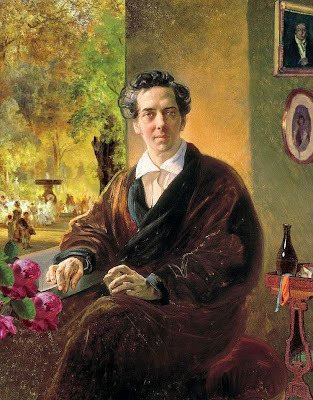
http://www.flickr.com/photos/deajuly/6952508692/
Aleksey Perovsky (1787-1837) was a natural son of Count Andrey Razumovsky (an influential Freemason who in his turn was son of Cyril Razumovsky, the last hetman of Ukraine, and nephew of Aleksey Razumovsky, called the Night Emperor) and a Russian man of letters. “When living in Germany during his military service Perovsky took a great interest in German romanticism, and Hoffman, in particular, and it had a great impact on his own creativity. After retirement [from army] he settled in Petersburg and took care of upbringing and education of his nephew Aleksey [...] After the death of his father in 1822, Aleksey Perovsky settled in Pogoreltsy Estate in Ukraine, together with his sister and nephew and took the penname of Antony Pogorelsky, based on the estate name.” In 1829, he published the book that brought him real fame: it was the fairy tale “Black Hen, or Living Underground” written for his nephew, the first book about childhood in Russian literature. The golden snuffbox in his left hand, which we can see in this picture, may be a heavyweight allusion to the famous fairy tale “The Snuff-Box Town” written by another life-long bachelor Vladimir Odoevsky (1803-1869), a prominent Russian “philosopher, writer, music critic, philanthropist and pedagogue,” known as “Russian Hoffmann” on account of “his keen interest in phantasmagoric tales and musical criticism.” (It must be said that both the mentioned fairy tale and the fairy tale by Perovsky always were among the books that was a usual read of all Russian children, including Author of this Note.) After his ultimate retirement in 1830, Perovsky dedicated himself fully to the upbringing of his nephew, traveling with him in Italy, mostly. The nephew Aleksey is Count Aleksey Tolstoy (A. K. Tolstoy, 1817-1875), writer too, “considered to be the most important nineteenth-century Russian historical dramatist,” childless too, died of a self-administered lethal dose of morphine at his estate. And Perovsky died of tuberculosis on the way to Nice, the place of his medical treatment. As I learnt from Wikipedia, the picture, which I’d like to bring to your notice, is entitled “Portrait of Count Alexy Perovsky”, 1835, Artist: Karl Briullov (1799–1852). The picture looks incomplete with the background looking almost like a sketch, which inspired me for making the collage. Entitling the collage simply “Writer”, I merely gave him some flowers, the view and the jug of drink.
P. S.The charming tale “Black Hen, or Living Underground” sounds instructive, here and there, even didactic, like Oscar Wilde’s tales which were written for and dedicated, as we know, to boys who Wilde loved. Apropos, 23 April is V. V. Nabokov’s birthday. The great Russian-American writer never mentioned the name of Oscar Wilde in his works, but it must be said that one of his first pen-names was “Vivian Calmbrood” (Vivian Calmbrood’s “The Night Journey”), and one of Wilde’s sons was named Vivian. affectionatelyLara Biyuts
P. P. S._____/)___/)______./¯”//))
¯¯¯¯¯¯¯¯¯\)¯¯\)¯¯¯'\_„\\))*~~♥*~~♥*sending some love....xoxo ♥ L.B.
Published on April 21, 2012 04:55
April 16, 2012
our feast
...the baby...

...in other words... my blog is 5 on 13 April, 2012.
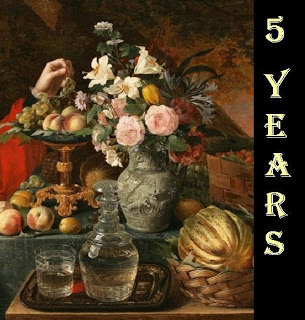
on the Downright Fiction website, read Excerpt 2 from my latest novel Silver Thread Spinner
http://www.downrightfiction.com/2012/04/silver-thread-spinner-excerpt-day.html
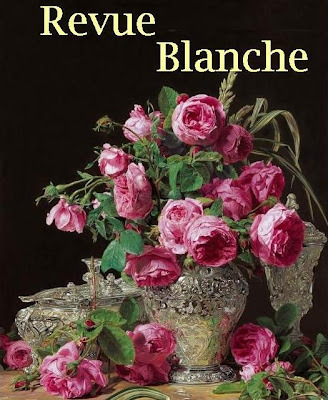
Published on April 16, 2012 07:39
March 5, 2012
march
Now is the springtime...

"March. Caterwauling in thedusk. Tender is the Night, though rather hoarse."-(Lara Biyuts about the novel Tenderis the Night)
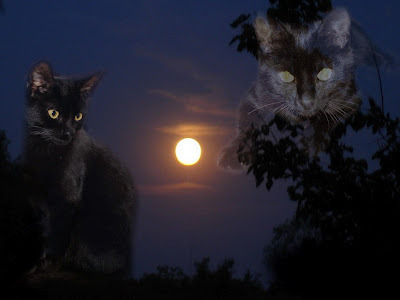
3 small notes from my Facebookpage, summed up here, in this post:
1).Opera Montezuma (1755), byCarl Heinrich Graun (1704-1759), with the libretto written in French by Graun'spatron, Frederick the Great, the King of Prussia.http://www.guardian.co.uk/culture/2010/aug/15/montezuma-edinburgh-operaAs Vladimir Nabokov said aboutone of his paternal grandsires in the interview to the German TV, 1971, "…hiswife, grandmother of my grandmother […] was a granddaughter of the composerCarl Heinrich Graun."http://en.wikipedia.org/wiki/Carl_Heinrich_Graun
2).In memory of Dmitri Nabokov(1934-2012).http://en.wikipedia.org/wiki/Dmitri_Nabokovmy friends know that I am a hugefan of Vladimir Nabokov. His son Dmitri was born in 1934 (like my late father,merely in May, and my father in April. My father was a compatriot of Dmitri'sparents, and Dmitri's birthplace was Berlin.) I little know about his life,merely, he appears as an angel-looking little boy in the book "Speak, Memory!"written by his father, and then, we can guess how much he did for his father'sand mother's memory. (Someone will do it for his, I am sure.) With his death,his line is extinct which always was what his family enemies dreamt about, buthis cousins are numerous in the world, as far as I know, (just like mine :/ ).R.I.P.
3).Recently, I translated the newbook Terug naar Hiroshima–Return to Hiroshima written by Bob Van Laerhoven,Belgian Novelist (the bobvanlaerhoven.be/en) http://www.bobvanlaerhoven.be/public/uploads/files/Return_to_Hiroshima_rus%20%282%29.pdfAfterwards, I learnt that my workon the translation was in process of being finished/polished at the hours whenDmitri Nabokov was dying in the hospital in Vevey, Switzerland on February 22,2012, and at heart, I dedicated this translation to D.N., whose work for hisfather's memory I always appreciated, all the more that I love the book Returnto Hiroshima as a reader, believing it is an excellentfiction/thriller/detective fiction, worth reading and translating. Here is thefragment in English:http://www.bobvanlaerhoven.be/public/uploads/files/Return%20to%20Hiroshima.pdf
Finally, at Toni Grace Sinns'website, you can read my interview and more mentions of V. N.:http://lilgracielou.blogspot.com/2012/03/interview-with-author-larisa-biyuts.html
Published on March 05, 2012 20:20
January 1, 2012
S T S excerpt 1
In this issue, you have a chance to read the excerpt from the novel Silver Thread Spinner by Lara Biyuts. Part 3, The Shadows Call. A bit from the story of an Egyptologist entitled Day Outlasts Century:
To bed, to bed, all he needed now was a good sleep.
But slumber eluded him. Morpheus had closed the door to his tired mind. He did not know when he fell asleep and when he began to dream; his dreams were so real that he did not feel dreaming. He remembered afterwards how intensive the anxiety he had was... When he was falling asleep, his thoughts lost their distinct contours; as though soaring in a turbid substance, the thoughts turned into obscure visions: a dark silhouette of a man on a roof dissolving with the moon that turned into a cat's eye, whose sulphur colour brought a mysterious rustling of foliage, which fluently slipped into a colourful butterfly against the blue ceiling, whose wings turned into roseleaves, and fluid aroma flowed out to a pendent mere of attar in which one could see a sunlit garden full of some winsome labiate flowers like in the mirror on the opposite wall where pinks blended with golden hues. Eventually, all visions drifted from his mind as he quickly slipped into a deep sleep, supposedly restful.
Now, dreaming, he saw his new friend Anthony Blanche sitting in a chair with a book in hands. Leonard tried to look at the man attentively, and the man's features and form transformed into the familiar female form of the goddess. He withdrew, and the image of Anthony Blanche returned. The man seemed to be about to read aloud. Indeed, looking down on the pages of the book, Anthony Blanche began, "From Tales of the Demiurges."
Another moment Leonard saw other man. The man was middle-aged and naked. "Am I dead?" asked the man.
"You are." It was other man and his name rose before Leonard's mind as an iridescent inscription against a dark star-spangled background "Shambumbooklie".
The naked man asked, "Who are you?"
"Demiurge," the man of the name Shambumbooklie replied, "One of many," he nodded examining contents of a thick volume, and he said again, "Dead. Absolutely."
The naked man shifted from one foot to the other, "What comes next?"
The demiurge Shambumbooklie glanced at the man and lost himself in reading again. "This way now," Without looking at the man he pointed to an ordinary door, "Or this way." His index finger turned to the opposite side, pointing to other similar door.
The man asked, "What's there?"
"Hell," said Shumbuboocklie, "Or paradise. It depends."
Hesitating, the naked man shifted his eyes from one door to another, "Where am I to go?"
"Don't you know, where?" the demiurge raised an eyebrow.
"Well…" the man stopped short in confusion, "Whatever I knew, I am to go somewhere, according to my deeds."
"Hum…" Shambumbooklie marked the pages with his finger and looked at the man. "According to your deeds?"
"Well yes. How can it be otherwise?"
"All right", Shambumbooklie opened the book at its beginning and said, "It's written here that at the age of 12, you helped an old woman to cross a street. Is it truth?"
"Yes, it is," The man nodded.
"Is the deed good or bad?"
"Good, of course!"
"Let's have a look…" Shambumbooklie turned the page, "In five minutes the old woman was run over by tram. But for you the old woman and the tram would miss each other, and she would live ten years more. Well?"
The man looked blank.
"Now, there…" Shambumbooklie opened the book at other page, "…at the age of 22, you and a group of your friends participated at the cruel beating of other group of friends."
"They were the first to attack!" The man jerked his head.
"It's written it was not so," objected the demiurge, "By the way, your alcohol intoxication is not an excusing factor. In general, you broke three fingers and a nose of a 16-year-old youth with no reason. Is it good or bad?"
Silence.
"After the mutilation, the youth could not play violin any more. You ruined his career."
"I did it by accident," said the man quietly.
"It goes without saying," Shambumbooklie nodded, "Apropos, the boy hated the violin from his childhood. After your boisterous meeting, he decided to go for boxing to be able to fight, and then he became a champion. Let's proceed?" Shambumbooklie turned a few pages more. "Is the rape good or bad?"
"But I…"
"That child became a good doctor and saved hundreds lives. Is it good or bad?"
"Well, I guess…"
"A life of a maniac-serial killer was among the lives. Is it good or bad?"
"But…"
"And the maniac killed the pregnant woman who could become a mother of a great scientist. Good? Bad?"
"But…"
"The great scientist--if he was born--should invent a bomb that could burn down half the continent. Bad? Good?"
"But I knew nothing of all this!" the man cried out.
"It goes without saying," agreed the demiurge, "Or this, for example, page 345… You stepped on a butterfly!"
"What did come of it?"
Without saying a word the demiurge turned the book to the man and pointed with his index finger to a text. The man read it, and his hair moved on his head. "Horrible!" he whispered.
"But if you didn't smash the butterfly, then look at what would happen." Shambumbooklie pointed to other paragraph.
The man read it and gulped down jerkily. "It turned out that I saved the world?"
"Yes. Four times. It was when you smashed the butterfly, when you pushed the old man, when you betrayed your comrade and when you stole the purse of your grandmother. Every time the world was on the brink of catastrophe but it got out thanks to you."
"Ah… as for the brink of catastrophe, it was because of me too?"
"It's because of you, make no doubt about that. Two times. When you fed a stray cat, and when you saved a drowning man."
The naked man became weak in the knees, and he sat down on the floor. "I can't understand anything," he gave a sob, "All I did in my life… all what I was proud of and what I was ashamed of… all is the wrong way round, all is inside out!"
"That's why it's wrong to judge you by your deeds--unless by your intentions, but you are your own judge in this." Shambumbooklie closed the book with a bang and placed it in the bookcase. "In short, as soon as you come to a decision about a right door, go there. And I have a pile of work to do."
The naked man lifted his tear-stained face. "But I don't know which of them opens into hell, which into paradise."
"It depends on your choice," Shambumbooklie shut the bookcase.
The demiurge turned round three times, dropped a curtsey, and gave a sweetest wide smile. Black as Negro's face, the smile trembled in the air, then it got lighter; with the reddish corners of its lips the smile touched the roofs and steeples of the town, descended as a pale mist, and finally it swallowed the town.
Charsky woke, because the lightning flashed, and another moment he heard a deafening thunderbolt. It was thunderstorm outside the window. Remembering where he was, he took breath, and took his mobile out of the pillow, where he slipped it before getting on the bed, and looked at the luminescent figures. It was afternoon. Looking round the dim lit room, he saw everything here was the same as it was when he fell asleep, and only the weather outside the window had changed. He reposed his head on the pillow, closed his eyes, and fell asleep again

About the book cover. Picture: Wintergarten in the Winter Palace (1840) Artist: Mikhail Antonov (19th century)
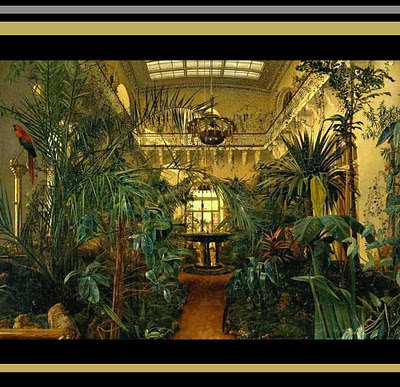

To bed, to bed, all he needed now was a good sleep.
But slumber eluded him. Morpheus had closed the door to his tired mind. He did not know when he fell asleep and when he began to dream; his dreams were so real that he did not feel dreaming. He remembered afterwards how intensive the anxiety he had was... When he was falling asleep, his thoughts lost their distinct contours; as though soaring in a turbid substance, the thoughts turned into obscure visions: a dark silhouette of a man on a roof dissolving with the moon that turned into a cat's eye, whose sulphur colour brought a mysterious rustling of foliage, which fluently slipped into a colourful butterfly against the blue ceiling, whose wings turned into roseleaves, and fluid aroma flowed out to a pendent mere of attar in which one could see a sunlit garden full of some winsome labiate flowers like in the mirror on the opposite wall where pinks blended with golden hues. Eventually, all visions drifted from his mind as he quickly slipped into a deep sleep, supposedly restful.
Now, dreaming, he saw his new friend Anthony Blanche sitting in a chair with a book in hands. Leonard tried to look at the man attentively, and the man's features and form transformed into the familiar female form of the goddess. He withdrew, and the image of Anthony Blanche returned. The man seemed to be about to read aloud. Indeed, looking down on the pages of the book, Anthony Blanche began, "From Tales of the Demiurges."
Another moment Leonard saw other man. The man was middle-aged and naked. "Am I dead?" asked the man.
"You are." It was other man and his name rose before Leonard's mind as an iridescent inscription against a dark star-spangled background "Shambumbooklie".
The naked man asked, "Who are you?"
"Demiurge," the man of the name Shambumbooklie replied, "One of many," he nodded examining contents of a thick volume, and he said again, "Dead. Absolutely."
The naked man shifted from one foot to the other, "What comes next?"
The demiurge Shambumbooklie glanced at the man and lost himself in reading again. "This way now," Without looking at the man he pointed to an ordinary door, "Or this way." His index finger turned to the opposite side, pointing to other similar door.
The man asked, "What's there?"
"Hell," said Shumbuboocklie, "Or paradise. It depends."
Hesitating, the naked man shifted his eyes from one door to another, "Where am I to go?"
"Don't you know, where?" the demiurge raised an eyebrow.
"Well…" the man stopped short in confusion, "Whatever I knew, I am to go somewhere, according to my deeds."
"Hum…" Shambumbooklie marked the pages with his finger and looked at the man. "According to your deeds?"
"Well yes. How can it be otherwise?"
"All right", Shambumbooklie opened the book at its beginning and said, "It's written here that at the age of 12, you helped an old woman to cross a street. Is it truth?"
"Yes, it is," The man nodded.
"Is the deed good or bad?"
"Good, of course!"
"Let's have a look…" Shambumbooklie turned the page, "In five minutes the old woman was run over by tram. But for you the old woman and the tram would miss each other, and she would live ten years more. Well?"
The man looked blank.
"Now, there…" Shambumbooklie opened the book at other page, "…at the age of 22, you and a group of your friends participated at the cruel beating of other group of friends."
"They were the first to attack!" The man jerked his head.
"It's written it was not so," objected the demiurge, "By the way, your alcohol intoxication is not an excusing factor. In general, you broke three fingers and a nose of a 16-year-old youth with no reason. Is it good or bad?"
Silence.
"After the mutilation, the youth could not play violin any more. You ruined his career."
"I did it by accident," said the man quietly.
"It goes without saying," Shambumbooklie nodded, "Apropos, the boy hated the violin from his childhood. After your boisterous meeting, he decided to go for boxing to be able to fight, and then he became a champion. Let's proceed?" Shambumbooklie turned a few pages more. "Is the rape good or bad?"
"But I…"
"That child became a good doctor and saved hundreds lives. Is it good or bad?"
"Well, I guess…"
"A life of a maniac-serial killer was among the lives. Is it good or bad?"
"But…"
"And the maniac killed the pregnant woman who could become a mother of a great scientist. Good? Bad?"
"But…"
"The great scientist--if he was born--should invent a bomb that could burn down half the continent. Bad? Good?"
"But I knew nothing of all this!" the man cried out.
"It goes without saying," agreed the demiurge, "Or this, for example, page 345… You stepped on a butterfly!"
"What did come of it?"
Without saying a word the demiurge turned the book to the man and pointed with his index finger to a text. The man read it, and his hair moved on his head. "Horrible!" he whispered.
"But if you didn't smash the butterfly, then look at what would happen." Shambumbooklie pointed to other paragraph.
The man read it and gulped down jerkily. "It turned out that I saved the world?"
"Yes. Four times. It was when you smashed the butterfly, when you pushed the old man, when you betrayed your comrade and when you stole the purse of your grandmother. Every time the world was on the brink of catastrophe but it got out thanks to you."
"Ah… as for the brink of catastrophe, it was because of me too?"
"It's because of you, make no doubt about that. Two times. When you fed a stray cat, and when you saved a drowning man."
The naked man became weak in the knees, and he sat down on the floor. "I can't understand anything," he gave a sob, "All I did in my life… all what I was proud of and what I was ashamed of… all is the wrong way round, all is inside out!"
"That's why it's wrong to judge you by your deeds--unless by your intentions, but you are your own judge in this." Shambumbooklie closed the book with a bang and placed it in the bookcase. "In short, as soon as you come to a decision about a right door, go there. And I have a pile of work to do."
The naked man lifted his tear-stained face. "But I don't know which of them opens into hell, which into paradise."
"It depends on your choice," Shambumbooklie shut the bookcase.
The demiurge turned round three times, dropped a curtsey, and gave a sweetest wide smile. Black as Negro's face, the smile trembled in the air, then it got lighter; with the reddish corners of its lips the smile touched the roofs and steeples of the town, descended as a pale mist, and finally it swallowed the town.
Charsky woke, because the lightning flashed, and another moment he heard a deafening thunderbolt. It was thunderstorm outside the window. Remembering where he was, he took breath, and took his mobile out of the pillow, where he slipped it before getting on the bed, and looked at the luminescent figures. It was afternoon. Looking round the dim lit room, he saw everything here was the same as it was when he fell asleep, and only the weather outside the window had changed. He reposed his head on the pillow, closed his eyes, and fell asleep again

About the book cover. Picture: Wintergarten in the Winter Palace (1840) Artist: Mikhail Antonov (19th century)

Published on January 01, 2012 22:08
December 8, 2011
Simple Pleasures of the Season

At the Yuletide, thinking about allthe commentary here, I wish a New Year full of renewal, health, calm andexcitement to us all.
Merry Christmas!★*˚°。°*。°*★*˚°。°*。°˚°★*˚°。°*。°*★*˚°。°*。°*★˛°_██_*˚°。°/ ♥ \*˚°。°*。°*★*˚°。°*。°*★*˚°。°*。°*★˛. (´• ̮•)*.。*/♫.♫\*˛.* ˛_Π_____*˚°。*。°**˚°。°*。°*★.°( . • . ) ˛°./• '♫ ' •\.˛* ./______/~\*˚°。°*。°*°*❤ ˚°*★*(...'•'.. ) *˛╬╬╬╬╬˛°.|田田|門|╬╬╬╬╬*˚°。°*。°* ♥♥MERRY CHRISTMAS FROM MY HOUSE TOYOUR HOUSE!

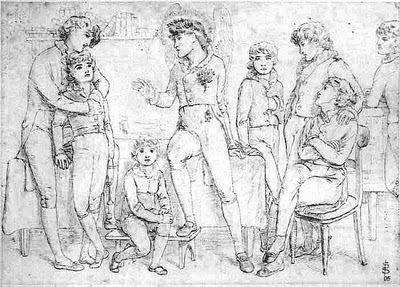
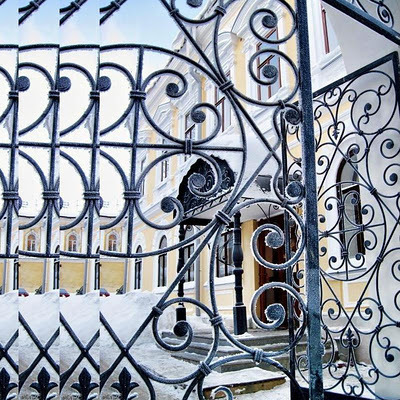
Author's Message: "I am thrilled announce that my WIP will be complete andreleased in summertime, 2012. For the present, only a working title "Summer'sHoney Breath" (search for the wording in Shakespeare's texts). The story of asixteen-old golden-eyed girl and her weird marriage is written in the form of aDiary. Note: beginning from the day of my first online session, I feel like asixteen-year-old when online, and since that day, I've not grown older,therefore, the only sixteen-year-old girl in the new story as well as all on myweb-pages and blog Revue Blanche can be me alone, and all the restsixteen-year-old girls may relax. Time: 1764, a year after the Seven Years' War(the global military conflict took place much earlier than WWI). Set in Europe,like each of my stories, the story is a historical novel, in which I study theinteresting case when a gay man is enforced to get married to a female and whatcomes from the unnatural act. Warning: no consensual sex, no sex relationshipat all between the spouses. The novel is a story of a young thing, who learnsthe world. Nothing unworldly, but the mysterious undead of the name of LordAboleo, who appears in the winter tale written by my main character in mylatest novel Silver Thread Spinner (ISBN 9781470988357), appears in the novel Summer'sHoney Breath as well, and he will appear in the future, in Volume Five, asequel of my novels (ISBN 9781409299011 and 9781445237596), dedicated to theboy of the name of Jocelyn, which will include a new story written by my main adultcharacter, in which Author will study the interesting question "Why on earthshould vampires be reckoned natural enemies to werewolves?" and which volume willbe complete no sooner than in summertime, 2013. If you believe that from this note you've learnt a hundredth of what thestories are about, you are mistaken. The reader can learn much much more whenreading the ebooks--" Silver Thread Spinner
La Lune Blanche
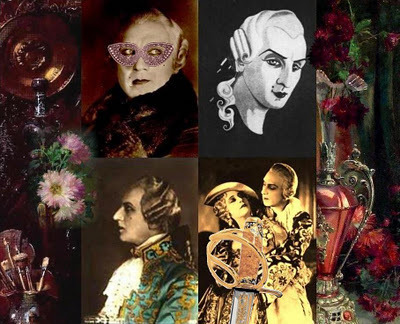
Published on December 08, 2011 02:39
December 2, 2011
Beyond Silver Threads

Author is thrilled toannounce her new book coming out on Lulu http://www.lulu.com/product/paperback/silver-thread-spinner/18714760and Smashwordshttp://www.smashwords.com/books/view/110216
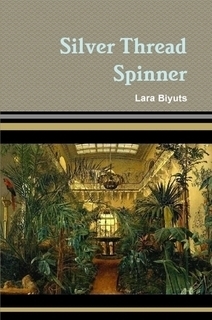

Published on December 02, 2011 05:53
November 27, 2011
his birthday
Published on November 27, 2011 18:41
October 10, 2011
SED NON SATIATUS
"Wilde, again, as always, and more than ever"
(my comment to a photo,
re-written as the note)
"Nabokov's works made me follow his literary taste almost entirely. Marguerite Yourcenar's brilliantMemoirs of Hadrian changed my spiritual
life (if I ever had it). Evelyn Waugh is the best literary stylist for me.
Chekhov is my first literary love.
Oscar Wilde is my current icon."
(Lara Biyuts)
Saying that I am a votaress, fan and sympathizer of my native Monarchy and monarchists, I have to say that this my view is well-founded and completely in concordance with my other views satisfying my imagination and feelings, and I need nothing else in this regard, and I don't see reason why I should love every royal family if I'm my native monarchy's fan. This my double standard is quite understandable. Really, the family of our Russian last Emperor seemed so tolerant to homosexuality, as we know, since at least three Grand Dukes were said to be gay me and nobody was about to do any harm to them for their sex orientation, at the same time, the death of Prince Eddy seems oh so suspicious for me, and in the light of Oscar Wilde's case I feel certain that the Windsors well may do away with the prince, secretly, in camera, as it were, since those men were mighty enough to arrange and imitate whatever. Apparently, our Russian mamas loved their sons much more, too much to let any crazy puristic uncles to kill their sons because of such a trifle as a lifelong homosexual romping. Apropos, our Russian great poet Aleksandr Pushkin had four children, and much earlier, when he was a young student, he tried more than once to be cured of venereal diseases, which were incurable getting hereditary in those times, as we know. Later, after his death, one of his daughters finally became a member of the British royal family, and personally I am happy to congratulate the Windsors and their fans on this "gift".
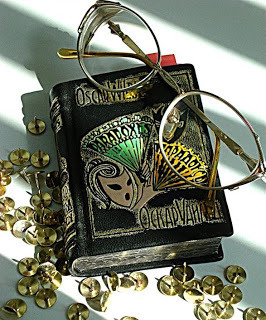
"on 21 November, again, as always, and more than ever"
The Russian cabaret artist and song-writer Aleksandr Vertinsky (1889-1957) left some interesting evidence in his Memoires. After he began a career of a singer in Moscow, he quickly became a super-star. It must be said that narcotics were most popular in Russia, the 1910s, especially at the time of the prohibition law (1914), and coke might be bought at any pharmacy, one of its kind, without a doctor's prescription, and the young celebrity Aleksandr quickly got addicted to this sort of the heady flower of decadence, however, like many actors, artists and aristocrats of the metropolises. As he told in his Memoires, he lived in an apartment with his room looking over a roof below, and every time emptying the next little vial of coke he threw it out of the window and it remained on the lower roof. One day he looked out of the window with his sober eyes and he got horrified with the amount of the little vials that covered the roof glittering like the snow. It's difficult to say when he got resolved on giving up coke, that day or on the day when he saw Aleksandr Pushkin, living and going by tram along with him, or on the day when he looking at himself in a mirror he could see his nose got disfigured, swollen and flabby, which was a result of the addiction. It was the WWI time, and after all these events resolved eventually into his giving up coke, he fled from the metropolis to the army. So, I conclude. A celebrity who takes coke may be recognized by his nose, which changes in the course of time. As for our favorite's nose, it is all right remaining without changing, getting neither reddened nor bigger/swollen (like late Tony Curtis'), as we can see. Thus we may congratulate each other and love our adorable celebrity Mr NG yet more.
Revue Blanche e-Library
On the Net, I happened to see some of my favorite stories by A. Chekhov, translated, but I don't know safe links, so, the link is to the collected stories by other Russian writer. Meet A. Kuprin (1870-1938) and his story Captain Rybnikov (1906). Author regarded the story as his best. PDF file: search the word "Ribnikov", and there will be the title.
http://www.archive.org/stream/riverof...
Two book recommendations:
http://www.goodreads.com/book/show/77...
http://www.goodreads.com/book/show/12...
Personally I never read the two books (links above), being busy with my new novel, which is complete and in process of being polished away, and which will be available on Smashwords and Lulu, after the 25th of November. A wonderful winter tale, gay-themed as always, is a part of the sequel of my new novel with the working title One Shadow for Two.
"Publication is a self-invasion of privacy."-(Marshall McLuhan). I hate admitting that the author is right, but I realize that he is. Wishing to be published author seems to agree to unveiling privacy. Most unpleasant. Rather unpleasant than complicated. On the other hand, the novelist, who has not a mask or masks on, when creating as well as in social life, cannot be called a good fiction author, and if any publication unveils something, anyway there much unveiled remains, and it's not a fact that the bottom will be ever reached.


(my comment to a photo,
re-written as the note)
"Nabokov's works made me follow his literary taste almost entirely. Marguerite Yourcenar's brilliantMemoirs of Hadrian changed my spiritual
life (if I ever had it). Evelyn Waugh is the best literary stylist for me.
Chekhov is my first literary love.
Oscar Wilde is my current icon."
(Lara Biyuts)

Saying that I am a votaress, fan and sympathizer of my native Monarchy and monarchists, I have to say that this my view is well-founded and completely in concordance with my other views satisfying my imagination and feelings, and I need nothing else in this regard, and I don't see reason why I should love every royal family if I'm my native monarchy's fan. This my double standard is quite understandable. Really, the family of our Russian last Emperor seemed so tolerant to homosexuality, as we know, since at least three Grand Dukes were said to be gay me and nobody was about to do any harm to them for their sex orientation, at the same time, the death of Prince Eddy seems oh so suspicious for me, and in the light of Oscar Wilde's case I feel certain that the Windsors well may do away with the prince, secretly, in camera, as it were, since those men were mighty enough to arrange and imitate whatever. Apparently, our Russian mamas loved their sons much more, too much to let any crazy puristic uncles to kill their sons because of such a trifle as a lifelong homosexual romping. Apropos, our Russian great poet Aleksandr Pushkin had four children, and much earlier, when he was a young student, he tried more than once to be cured of venereal diseases, which were incurable getting hereditary in those times, as we know. Later, after his death, one of his daughters finally became a member of the British royal family, and personally I am happy to congratulate the Windsors and their fans on this "gift".

"on 21 November, again, as always, and more than ever"
The Russian cabaret artist and song-writer Aleksandr Vertinsky (1889-1957) left some interesting evidence in his Memoires. After he began a career of a singer in Moscow, he quickly became a super-star. It must be said that narcotics were most popular in Russia, the 1910s, especially at the time of the prohibition law (1914), and coke might be bought at any pharmacy, one of its kind, without a doctor's prescription, and the young celebrity Aleksandr quickly got addicted to this sort of the heady flower of decadence, however, like many actors, artists and aristocrats of the metropolises. As he told in his Memoires, he lived in an apartment with his room looking over a roof below, and every time emptying the next little vial of coke he threw it out of the window and it remained on the lower roof. One day he looked out of the window with his sober eyes and he got horrified with the amount of the little vials that covered the roof glittering like the snow. It's difficult to say when he got resolved on giving up coke, that day or on the day when he saw Aleksandr Pushkin, living and going by tram along with him, or on the day when he looking at himself in a mirror he could see his nose got disfigured, swollen and flabby, which was a result of the addiction. It was the WWI time, and after all these events resolved eventually into his giving up coke, he fled from the metropolis to the army. So, I conclude. A celebrity who takes coke may be recognized by his nose, which changes in the course of time. As for our favorite's nose, it is all right remaining without changing, getting neither reddened nor bigger/swollen (like late Tony Curtis'), as we can see. Thus we may congratulate each other and love our adorable celebrity Mr NG yet more.
Revue Blanche e-Library
On the Net, I happened to see some of my favorite stories by A. Chekhov, translated, but I don't know safe links, so, the link is to the collected stories by other Russian writer. Meet A. Kuprin (1870-1938) and his story Captain Rybnikov (1906). Author regarded the story as his best. PDF file: search the word "Ribnikov", and there will be the title.
http://www.archive.org/stream/riverof...
Two book recommendations:
http://www.goodreads.com/book/show/77...
http://www.goodreads.com/book/show/12...
Personally I never read the two books (links above), being busy with my new novel, which is complete and in process of being polished away, and which will be available on Smashwords and Lulu, after the 25th of November. A wonderful winter tale, gay-themed as always, is a part of the sequel of my new novel with the working title One Shadow for Two.
"Publication is a self-invasion of privacy."-(Marshall McLuhan). I hate admitting that the author is right, but I realize that he is. Wishing to be published author seems to agree to unveiling privacy. Most unpleasant. Rather unpleasant than complicated. On the other hand, the novelist, who has not a mask or masks on, when creating as well as in social life, cannot be called a good fiction author, and if any publication unveils something, anyway there much unveiled remains, and it's not a fact that the bottom will be ever reached.

Published on October 10, 2011 08:17

